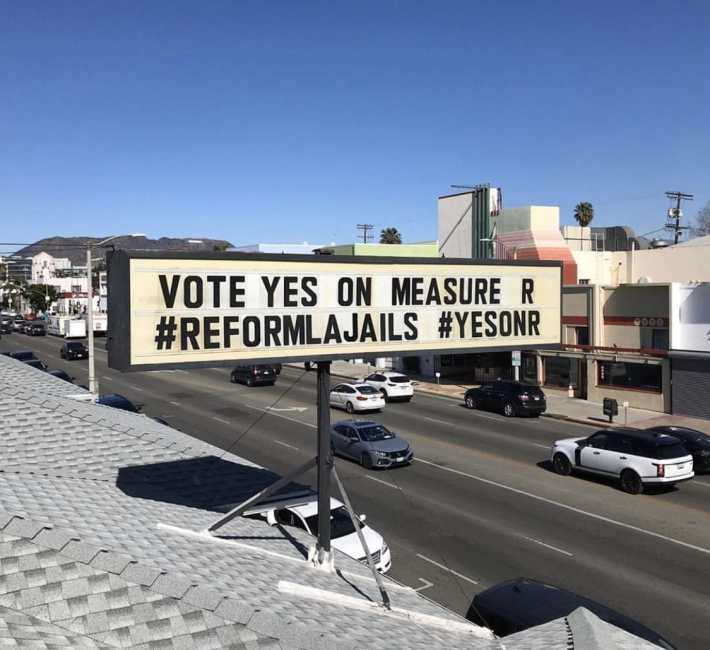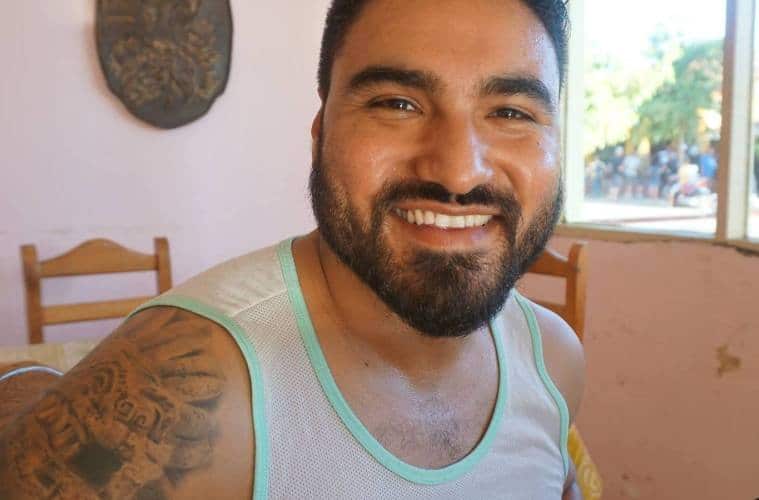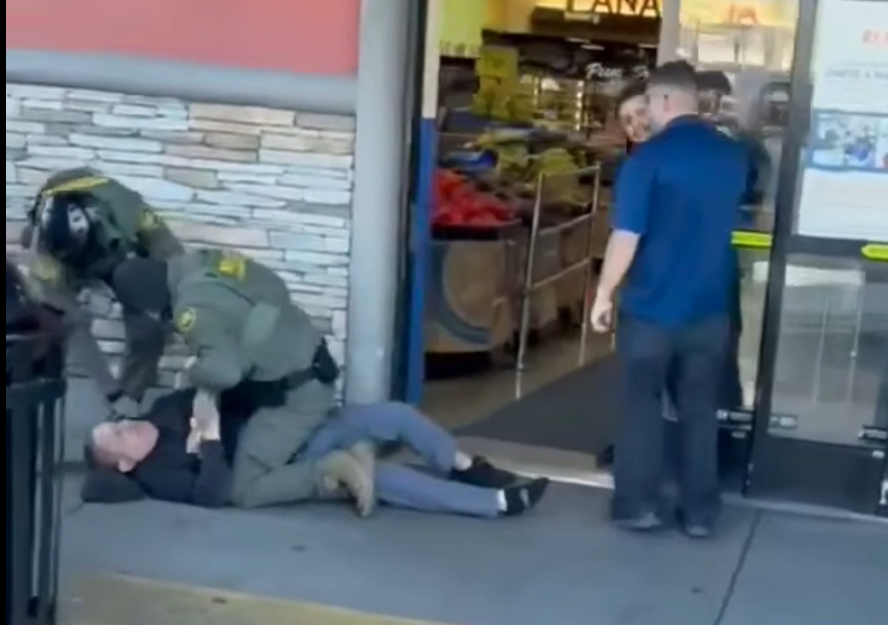[dropcap size=big]A[/dropcap]nnette Zaragoza-Bilow didn’t have a role in crafting Measure R, but her support for the measure is deeply personal. If it passes, the measure will not only give the Sheriff Civilian Oversight Commission stronger oversight power, but will also restructure the infrastructure in how Los Angeles county incarcerates people and, more importantly, treats people with mental health issues.
She hopes that the ordinance will help people like her brother, Gerry Dean Zaragoza, before it’s too late.
“My brother tried to get help for many years before the incident,” she recalls in an interview with LA Taco.
The incident Zaragoza-Bilow is referring to occurred last year when her brother Gerry suffered a psychotic episode on the night of July 25th. By the time police detained him the following afternoon, he had killed four people, including their father, Carlos Ignacio Zaragoza, and brother, Carlos Pierre Zaragoza. Their mother, Blanca Zaragoza, was also wounded.

The incident was devastating to the family and friends of Carlos Pierre, including myself. He was a staple of and constant presence in L.A. 's cumbia and activist circles thanks to his time with La Chamba and work with the SEIU. No one feels as devastated as his own brother Gerry who remains locked away in the Twin Towers Correctional Facility in downtown where he is still trying to process the consequences of his own actions made under severe mental duress and trauma.
“He loved Carlitos so much,” says Zaragoza-Bilow, “and he’s heartbroken.”
In the aftermath of the incident, Zaragoza-Bilow eventually found help from friends and activists working to support Measure R. The measure was crafted by the committee Reform LA Jails, which is itself part of the JusticeLA coalition led, in part, by organizer Patrisse Khan-Cullors, a co-founder of Black Lives Matter.
Proponents of Measure R have found support from presidential candidates Bernie Sanders and Elizabeth Warren, the ACLU, the L.A. County Democratic Party, the editorial boards of the L.A. Times and La Opinión, and George Gascón, candidate for Los Angeles District Attorney, among many others.
“If Measure R would have existed 20 years ago,” says Zaragoza-Bilow, “My father would have gotten the help he needed, which would have allowed my brother to get the help he needed.”
Much of the conversation behind Measure R has focused on the changes it seeks to make to the Sheriff Civilian Oversight Commission. Specifically, the measure would provide the commission with the power of subpoena independently of the Office of Inspector General. County supervisors created the OIG in 2014 to investigate numerous claims of abuse and discrimination in the sheriff’s department under then-Sheriff Lee Baca. Two years later, the county created the commission to oversee the department in conjunction with the OIG (Office of Inspector General) to investigate allegations of abuse and misconduct.
“The commission,” however, “Has been unable to perform its oversight function,” said Lynne Lyman, strategy and policy consultant for “Yes on R,” in an interview on KPCC Air Talk.
“Subpoena power under Measure R gives the ability for the commission to use its own staff to investigate misconduct,” she explained. “This is important because what happens at the county is the County Counsel always claims conflict of interest and then refuses to do the investigating of its own department.”
“This way,” Lyman continued, “We will not have that kind of ongoing roadblock we’ve seen with all attempts across the county even in other departments, like probation, to have some accountability.”
The most outspoken opponent of Measure R is Sheriff Alex Villanueva. In a separate interview on KPCC Air Talk, he denounced the measure as a “public shaming effort from people who have always been opposed to the sheriff’s department and what we do.”
Measure R, however, seeks to do more than simply litigate law enforcement ad infinitum. It seeks to hold the sheriff’s department accountable through an independent body to avoid the types of abuses and misconduct prevalent under former sheriff Baca while also shifting the responsibilities of mental health care away from prisons and jails.
Villanueva’s main concern in his opposition against Measure R is legal, bureaucratic, and financial. He explains in the interview that he is trying to protect the department from litigation that seeks to obtain confidential information that cannot be legally obtained otherwise and must then be protected in court from lawsuits seeking this information. He cited the recent legal battle between the Board of Supervisors and the Sheriff’s Department as one example.
“In essence, they sue themselves,” Villanueva said. “That’s costing the taxpayers a fortune.”
Measure R, however, seeks to do more than simply litigate law enforcement ad infinitum. It seeks to hold the sheriff’s department accountable through an independent body to avoid the types of abuses and misconduct prevalent under former sheriff Baca while also shifting the responsibilities of mental health care away from prisons and jails.
“It’s going to create a pathway for adequate mental health care in Los Angeles county,” explained Khan-Cullors during a recent live taping of The Intercept’s Deconstructed podcast.
“We have the largest mentally ill population inside our jail system making the Los Angeles jail system the largest mental health provider,” she continued, “Which means that most of those people are being over-medicated, abused, they’re being cycled in and out of the streets and back into prisons, back into jails, back into psych ERs, they’re not receiving the treatment that they deserve.”
The main issue at the heart of Measure R is the complete restructuring of the L.A. county jail system as the main provider of mental health services. By shifting finances and resources away from prisons and jails, supporters of Measure R hope to shift mental health services away from institutions of punishment and reactionary (mis)treatment and toward a new system of assistance, treatment, rehabilitation, and prevention.
Supporters of Measure R have already partially succeeded in their efforts. They were instrumental in pressuring the LA County Board of Supervisors in canceling a contract with McCarthy Building Companies to build a new detention facility, dubbed the “Mental Health Treatment Center,” to replace Men’s Central Jail. The County Board then reallocated nearly $300 million dollars of funding for that jail to the Department of Public Health and the Office of Diversion and Reentry.
“Before we move forward with building an expensive new jail,” said Supervisor Hilda Solis in a press release following the decision, “We must address the mental and physical health needs of our jail population, many of whom can be safely diverted to community-based treatment facilities, which have better outcomes, and thereby increase public safety. Today’s cancellation of the McCarthy contract creates an opportunity to begin to move in a new direction, towards this ‘care first, jail last’ model, by first collecting essential data and greater community input.”
“We have the largest mentally ill population inside our jail system making the Los Angeles jail system the largest mental health provider.”
As the current system exists, the infrastructure that centers mental health treatment as an arm of incarceration cannot break the cycle of suffering so many people endure due to a lack of adequate mental health care and treatment. Zaragoza-Bilow knows this all too well. While speaking to me in the parking lot at Self-Help Graphics, she details the long history of abuse and trauma her family has endured beginning with her father. His trauma became her family’s trauma and her brother Gerry endured the brunt of it. He is now being held in a jail where he still can’t access the proper care he has sought and needed for years. She, like so many other supporters of Measure R, hopes to take the next step in breaking that cycle of trauma and suffering with this measure.
“My father was also in and out of jail and was helped at a maximum psychiatric center twice,” Zaragoza-Bilow explains, “But released almost immediately because they don’t have the funds to keep them there for a long time.”
“I remember my mom saying, ‘If you let my husband go, he will kill us,’” she adds. “They just said ‘there’s nothing we can do.’”
Months before the tragic incident, Carlos Pierre decided to return to his parent’s home to assist Gerry with his mental health issues and break that cycle of generational trauma. “I told Carlitos not to go,” remembers Zaragoza-Bilow, “because the situation was too toxic.” He refused and moved back in with the hope that he’d be able to help his brother. In the end, the current system failed him just as it failed his brother and his father.
As for Gerry, he was recently moved to solitary confinement and forced to dress in a safety and anti-suicide smock as he continues to wait on a judge’s decision on whether he’ll be held for life in a state prison or be sentenced to death.
“If Measure R would have existed 20 years ago,” says Zaragoza-Bilow, “My father would have gotten the help he needed, which would have allowed my brother to get the help he needed.”
“That’s why I’m fighting for it,” she continues. “To prevent anything like this from ever happening again. Torturing my brother is not going to prevent this. I feel like I’ve been called to make sure this never happens to a family ever again. It was so terrible for so many people.”







